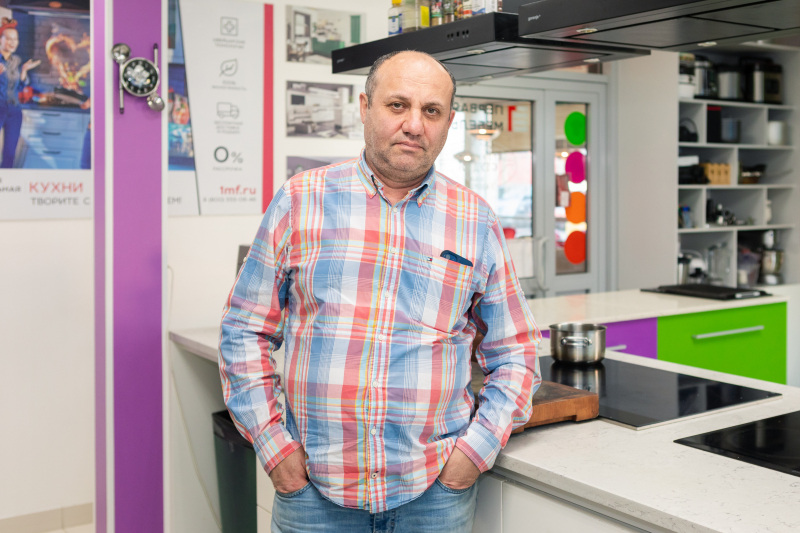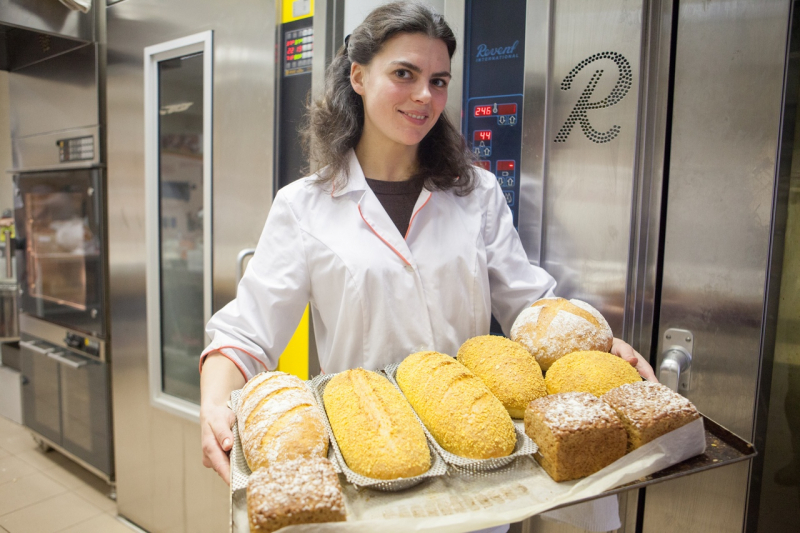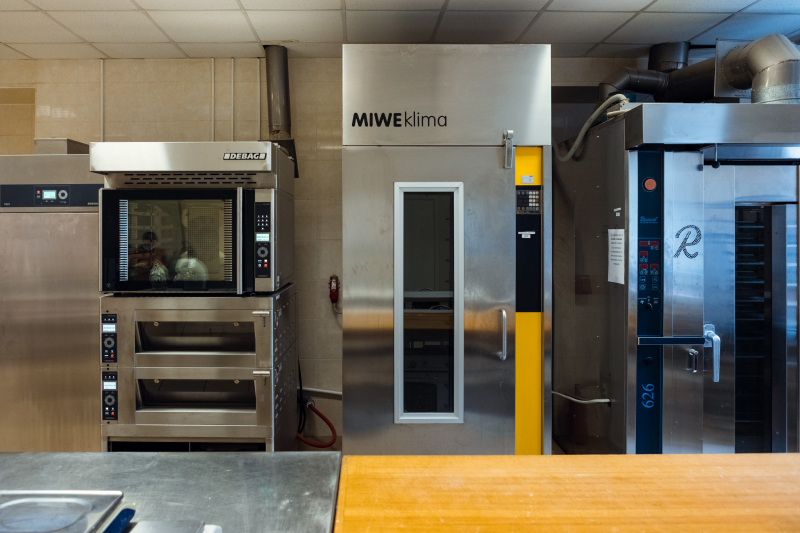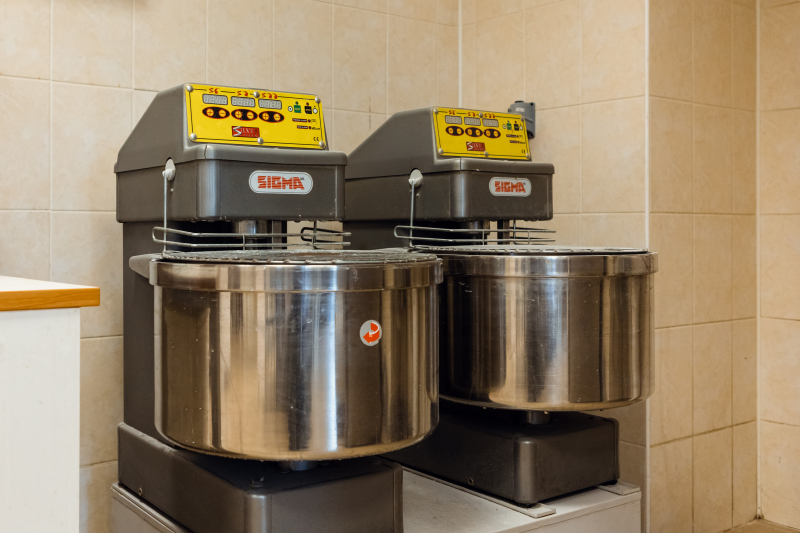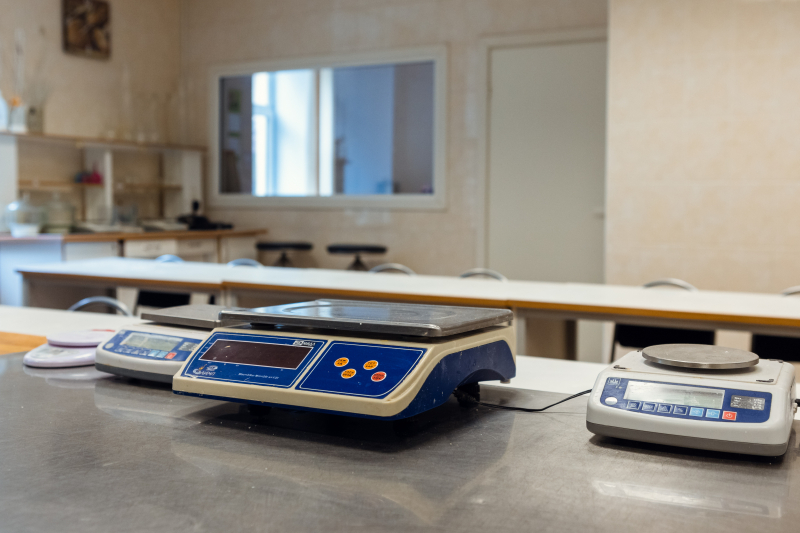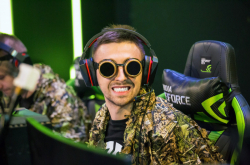When did you discover your true calling? And why did you become interested in cooking?
When I was a kid, I enjoyed watching my grandma cook. I was fascinated by the physical part of it: why does meat shrink and dough rise when cooked? In sixth grade, I decided that I wanted to pursue cooking and even wrote about it in an essay. So, once I finished secondary school, I had no doubts about enrolling in a cooking school.
Why did you decide to continue your studies and choose the Leningrad Technological Institute of Refrigeration Industry?
Back then, people believed that you can’t get anywhere in this world without a degree. My parents shared this opinion, too. They wanted me to go to university but it was also my own wish to study. My family is from a small town in the Ukraine but my sister went to Leningrad (St. Petersburg) to study. I often came to visit her and I knew my way around the city well, so no wonder I followed her example after I completed military service.
With my cooking school training in food production, I decided to apply to a food institute. Restaurant and industrial food production technologies are two completely different fields. At that time, there was also the Leningrad Institute of Soviet Trade, which was extremely popular and thus next to impossible to get in. One of its lecturers there was Prof. Kovalev whose books about Russian cuisine were my favorites growing up. Surely, I was afraid I wouldn’t make it, so I went for food production technologies instead.
Another thing that helped me make the decision was that that was the year when the university first ran special programs for those who just got from the army. There were foundation programs that offered a year-long training in core subjects (physics, mathematics, Russian, and so on). In late summer, the soon-to-be students had exams, and those who passed them successfully were enrolled in the university. In 1986, the government allowed men who completed their military service in spring to join first-years because there was a shortage of men in what was thought to be primarily women’s specializations.
There were around 20 of us. I learned during the interview that I could opt for any faculty except the tech one, the very same I wanted to enroll in. It was extremely popular, and the university wanted recent soldiers to study something like air conditioning or refrigerating machines. I was also told that I wouldn’t handle the chemistry exam at the tech faculty. Funnily enough, I accidentally came to the repeat chemistry exam for first-years instead of the one for applicants, and successfully passed it. That’s how I got into the technology of bread, confectionery, and pasta, and I was the only boy in my group.
Didn’t it bother you?
Not really. I’d say the opposite. They all wished there were more men in this field.
What else did you do? What are your brightest memories from your student years?
I was the head of my group and I protected my groupmates, so to say. For instance, from Komsomol, which was a quite powerful organization at universities. Back then, we were sent to work at factories because of mass layoffs. My group went to work in the packaging pipeline at a processed cheese factory. The work wasn’t hard and we were even excited to see the inside of production. Yet I wasn’t happy with the mandatory policy. Once I was even called to a meeting of the faculty’s Komsomol where I was lectured and reprimanded, without it being noted in my personal file.
I was also a member of the student scientific community and was engaged in organic chemistry. There, I got paid, too. We helped our professor create a food stabilizer out of carboxymethyl starch. It is commonly used in toothpastes, ice cream, and many food products. The final stage of its production requires alcohol to clean the substance. And the professor wanted to find a way to make this alcohol suitable for reuse. We studied the issues of second distillation and cleaning systems, – everything that is now referred to as the fractionating column widely used in alcohol production.
What was your favorite meal at the university’s cafeteria?
I was a student in 1986-1991, and life was hard in the 90s: foods were rationed and people had to queue to get something to eat.
Pickles, for some reason, were in short supply. They are one of the key ingredients of the Russian version of the Olivier salad. Because of that, our cafeteria decided to replace them with pickled tomatoes. Other students hated them but not me. I always liked sour tomatoes. Back when I was still in the army, we had lots of them and no one ate them except me. So, this salad was one of my favorites.
Now that you are armed with all this experience, do you believe that chefs should be well-versed in food production technology? And do chefs need higher education?
These days, I am teaching at the very university I was scared to apply to – and not just that, I am also invited as a guest speaker to talk about food production technology. I often jokingly tell my students that they shouldn’t be at university but then I remind them that being a student teaches you to learn and makes it into a habit. Cooking is a craft, but it is a craft that you have to keep learning.
Generally, higher education gives you a chance to learn and be ambitious, focused, and ready to pursue your goals. If anything, you acquire new tools to plan your own life more efficiently. It is at university that your mind gets used to analytical thinking.
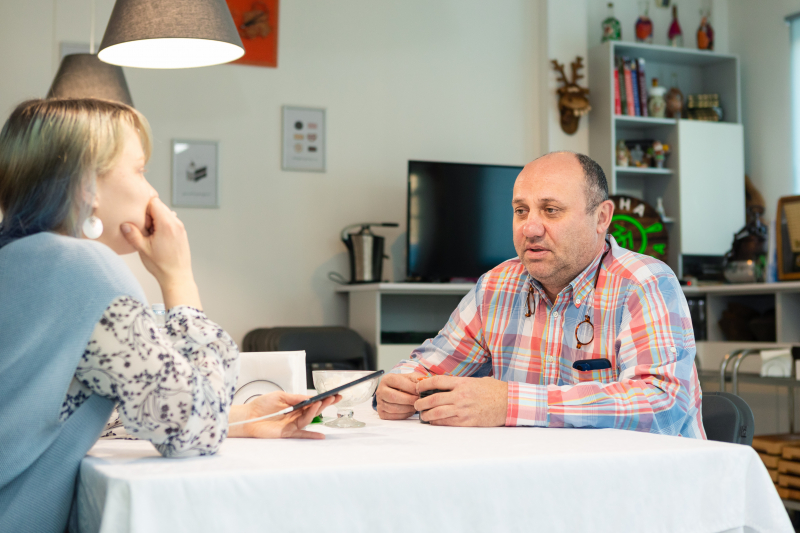
Ilya Lazerson. Photo by Dmitry Grigoryev, ITMO.NEWS
What do you think about new fields and methods in food production, such as, for instance, foodtech?
It’s the zeitgeist and if a technology naturally enters our lives, then it’s going to be in demand and will sell well, which is very important – you can’t do something just for the sake of your own enjoyment.
Digital product tracking technologies are one of the most popular fields these days. They make it possible to scan a QR code on anything you bought at a grocery store and access the whole production path of the product. That way, you could learn about, say, the plant that was used to make sugar, where this plant was kept, if it was chemically treated, and whether the resulting sugar was bleached. This production process is quite intriguing and such information is good to have.
How and why did you get into social media and writing cookbooks?
For quite a while I’ve been aware that I’m good at explaining what I know in simple terms – and not just when it comes to food.
When I was a student, I helped my groupmate with core subjects – she couldn’t understand a thing, but she was a great person and she could cook well. That’s how we became friends, actually: we would cook together in the dorm kitchen. She failed her first exams, so I helped her practice for her repeat maths exam. Funnily enough, later I also happened to help my future wife with her repeat chemistry exam in our third year. She got a “good” in the end.
As for food, I can find words to explain something both to professors and to eleven-year-olds. I think I would make a good methodology specialist or lecturer. Also, I feel that if I have too much information in my head, I get an overload, so sometimes I have to share this information with others to make room for something new. So when I saw I could also monetize it, this was just another push to continue.
In November 2021 Ilya Lazerson’s YouTube channel hit 1 million subscribers
You’ve had several successful TV shows. Do you see your YouTube channel as the next step on the same path?
I got on TV rather early and I am still a resident of one of the channels. In the TV business, there is a lot of censorship, control, and editing. It’s nearly impossible to show who you are. YouTube is something of a home-made TV where you can do everything your heart desires. You are your own editor and director. So, for me it’s a way to express myself.
It is my chance to say something new and show what is right or maybe point out those who are doing it wrong. Moreover, it’s an opportunity to do something good using my status.
You engage in charity activities – is that what you mean by “something good”?
Yes, I sometimes work with children with disabilities. We have charity organizations in Russia that work like their American counterparts – they make children’s dreams come true.
I also have a mentee, his name is Max. He is a cheerful lad, a little younger than me, and he can use only one of his hands. He lives in Barnaul and runs his own YouTube channel about food. At first, I talked about his channel in my videos and sent him a knife set as a gift. Then I brought in another popular food blogger and we helped Max grow his audience.
Once I also had the chance to meet a boy from Tatarstan who has muscle atrophy. I noticed that he uses a regular mechanical wheelchair even though his fingers are active and he could use an electric one and press buttons to move around. That would help him be much more independent and change his life for the better. I spoke about him at a blogger event in Tatarstan and we raised some money there, but not enough – we would need about 800,000 rubles. So when I hit 1 million subscribers, I held a livestream and announced another crowdfunding initiative, which is now ongoing.
